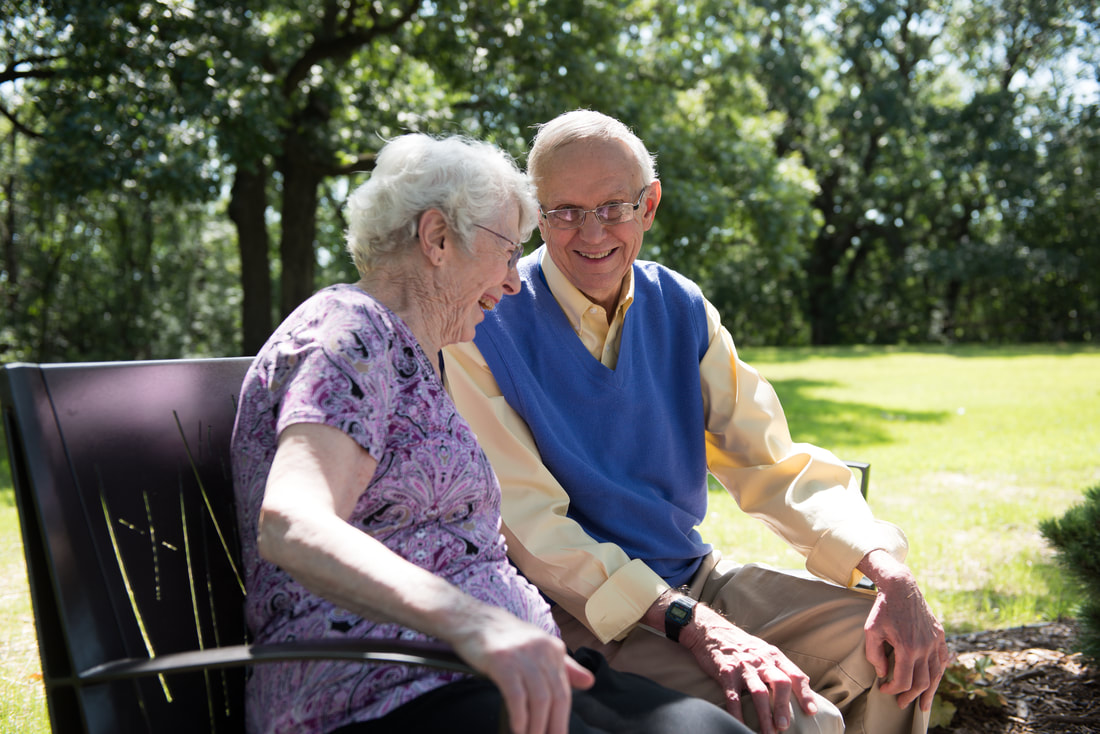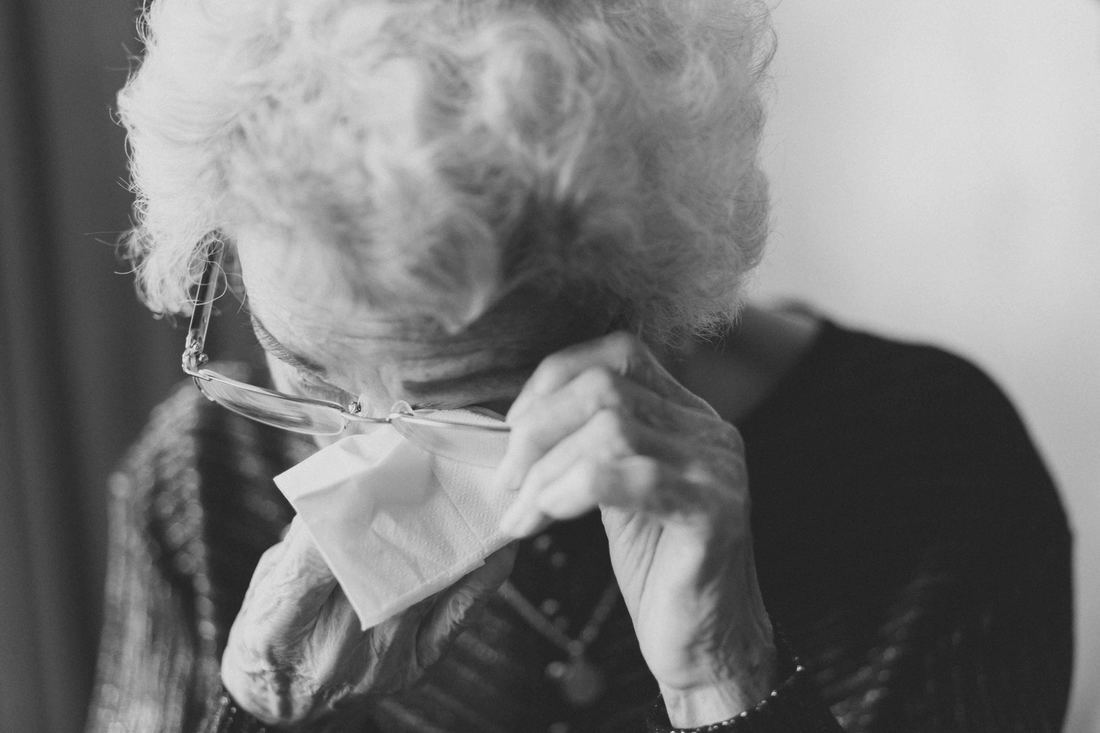|
This blog comes from Emily Holland, Wall Street Journal and Dan Buetter, Blue Zones Power 9 Many older adults want to stay in their home as long as possible because there is an assumption that living at home is a sign of independence, but the reality is that living alone can often lead to loneliness and isolation. This loneliness and the health risks that are associated with it can be overcome with Senior Living Communities! Senior Living Communities provide great opportunities to interact with others, have purposeful engagement in daily life, and more! Senior Living Communities are a Great Option Especially for Those Who Are:
Senior Living Communities Provide More Meaningful LivesWhen people move into our Senior Living Community here at Martin Luther Campus, the residents often tell us, “I wish I would have moved sooner” and their family members comment “We’ve seen our loved one blossom in the last few months!” These comments show that Senior Living improves lives, but how exactly does Senior Living fight loneliness and provide more meaningful lives? How Can a Move to a Senior Living Community Help Fight Loneliness?
Are you or a loved one feeling lonely and are yearning to join a fun and fulfilling Senior Living Community? Schedule a private tour of the Martin Luther Campus to check out our beautiful campus and all of the great programs that we offer. For more information about loneliness and isolation, take the quick and beneficial isolation and loneliness self-assessment. Martin Luther Campus is part of the Ebenezer family of Lutheran Senior Care Communities. We provide transitional care and assisted living apartments for seniors in Bloomington. We also have adult day clubs and memory care programs for seniors living at home. We’re located at 1401 East 100th St. Bloomington, MN. Are you interested in transitioning to assisted living or do you have a loved one that needs assisted living? Call us at 952.888.7751.
1 Comment
Tips Came from Marysue Moses, Ebenezer Dimensions Program Coordinator When you are taking care of a person who has dementia, it is important to be aware that paranoia is a very common symptom of dementia. Paranoia is accusation or suspiciousness that a person with dementia has about something or someone. We've compiled some tips for helping your loved one who is struggling with dementia and paranoia. General Rules for What to DoA common example of paranoia is when people who have dementia accuse others in the household of stealing something that they have actually misplaced. It is very tempting to try to convince the person (let’s call him Gary) that you didn’t take his belongings, but arguing with Gary only causes stress and frustration. Instead of trying to convince Gary why you didn’t take his belongings, try to see the situation from his point-of-view. In this instance, remember that Compassion= Empathy + Action (Sandra Mcgurran, Social Worker with Fairview Home Care and Hospice Senior Services). How to Give a Compassionate ResponseHere are some tips to guide you in giving a compassionate response when dealing with situations of paranoia and dementia. DO LISTEN to the person with dementia, and VALIDATE their feeling, i.e., say something to the person like: “That’s not a very nice feeling to think someone would just take something from you.” DO RESIST THE URGE to get into an argument with the person. DO ACKNOWLEDGE that they are upset. “I can see why you’re upset. I would be too, if that happened to me.” DO OFFER A SIMPLE IDEA. “I wonder if your shirt is in the wash. Maybe your wallet was left in a pocket?” DO BE HELPFUL and action-oriented. “I will go check the laundry room for your lost shirt” or “Let’s check your pockets for the wallet.” DO ASK QUESTIONS. Ask the person with dementia (Gary): “What color was that shirt that you lost?” DO BE REASSURING. Tell Gary: "Don't you worry, I’m sure we’ll find your shirt.” DO SHIFT THE FOCUS TO SOMETHING ELSE. Say to Gary: “Let’s take a break and have a cup of coffee; coffee always helps me think more clearly!” Be sure to offer an activity or meal that you know the person will be interested in! DO DUPLICATE items that are repeatedly misplaced. For example, if a person often loses their wallet, obtain several of the same kind of wallet to keep on hand. Make copies of cards that are in the original, so you can stuff the replacement wallets with those. DO NOT TAKE OFFENSE on behalf of the accused person. DO NOT offer a lengthy opinion or a list of reasons why they shouldn’t be upset; this may make them more confused and frustrated than before. What to Do if You Are Being Accused DirectlyDO LET THE ACCUSATION ROLL OFF YOUR BACK. Remember that your family member is functioning with a brain that is doing the absolute best it can under the circumstances of dementia. DO TRY IGNORING THE ACCUSATION. Instead, simply validate the person’s feelings by saying something like: “Oh no! Your favorite shirt is missing? Of course, you’re upset. That’s a beautiful shirt!” Validating Gary’s feeling could distract his focus from accusing you. Depending on the level of Gary's suspiciousness, you might need to step away and take a break (if someone else is there to assist Gary). In that case, tell Gary: “I can see that you’re upset with me. I’ll go see if Ann will help you look.” DO THINK AHEAD. For things that are frequently misplaced, it could be helpful to clearly label a home base in the room where a purse can hang or a wallet can sit. Think ahead by initiating a routine of checking that spot every night together. MAINTAIN A SENSE OF HUMOR AND GOODWILL towards the person with dementia. You can turn an uncomfortable situation around with some humor. For instance, you can tell Gary: "You know, Gary, I remember you telling me that when I lost stuff, I would forget my head if it wasn’t attached. You also said that lost things usually turn up if we are teensy bit patient and that was always so helpful!” Taking care of a loved one who struggles with dementia and paranoia may become too hard for you mentally and emotionally and at Martin Luther campus, we are here to help! We offer a Dimensions Memory Care Program that includes care plans based on detailed assessments that consider the person’s abilities, needs, preferences, and personal history, we employ staff with dementia-specific training, we have 24-hour staffing and round-the-clock emergency response, and more. For more information on helping a love one who has dementia, check out Coping with Behavior Change in Dementia: A Family Caregiver’s Guide, by Beth Spencer and Laurie White. For tips on the transition into a memory care facility, check out our Ten Tips to Ease Transition into a Memory Care Community. Martin Luther Campus is part of the Ebenezer family of Lutheran Senior Care Communities. We provide transitional care and assisted living apartments for seniors in Bloomington. We also have adult day clubs and memory care programs for seniors living at home. We’re located at 1401 East 100th St. Bloomington, MN. Are you interested in transitioning to assisted living or do you have a loved one that needs assisted living? Call us at 952-948-5167.
|
Director of Community Relations
Hello friends, my name is Kate and I'd love to share with you ALL of the wonderful things happening at Martin Luther Campus. Be sure to check our Blog, Lifestyle page and Facebook page often to stay updated on the happenings at our community! Archives
November 2023
Categories |
|
telephone |
|
DIRECTIONSimap
|
© 2021 Fairview Health Services
|



 RSS Feed
RSS Feed

